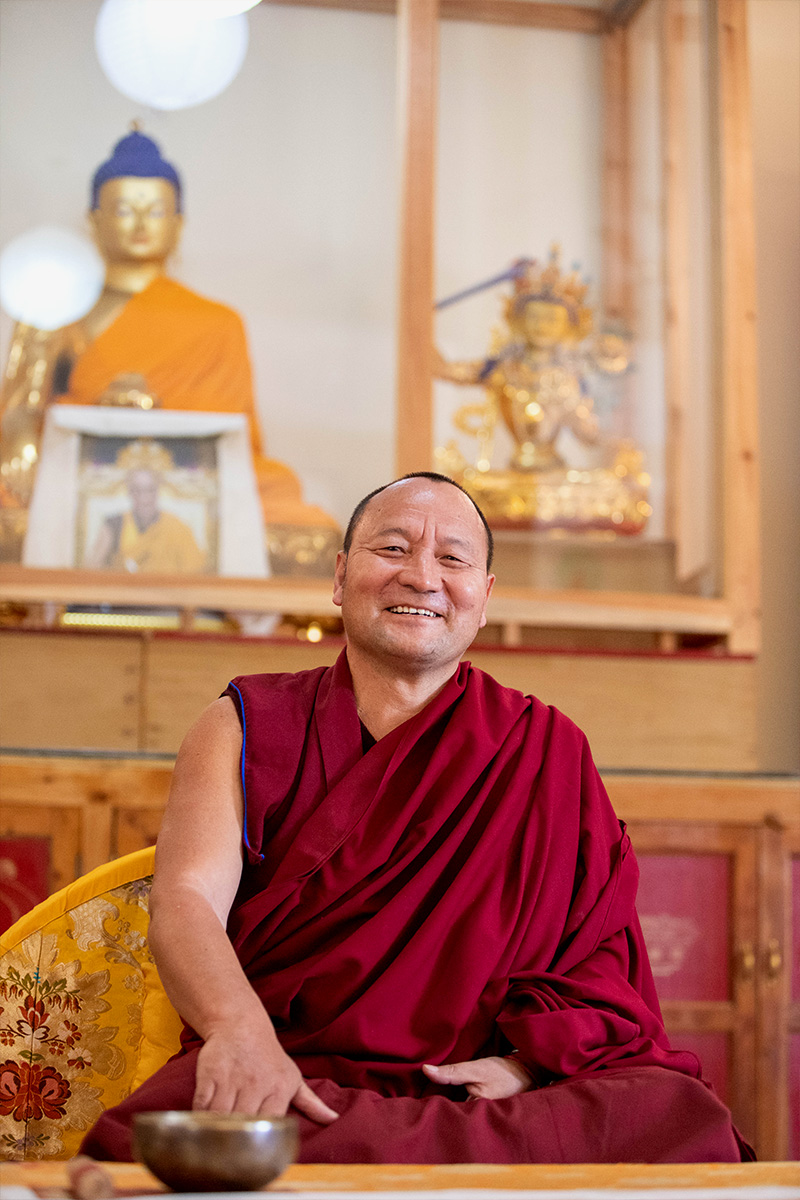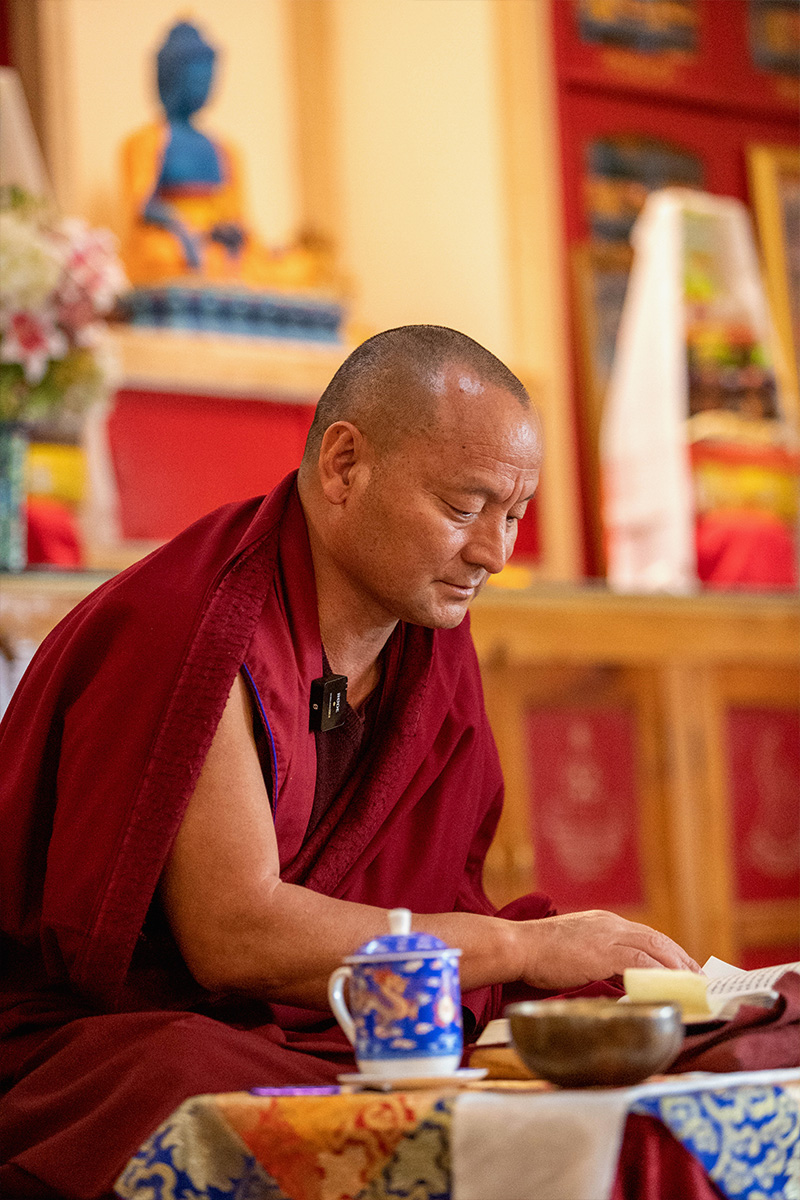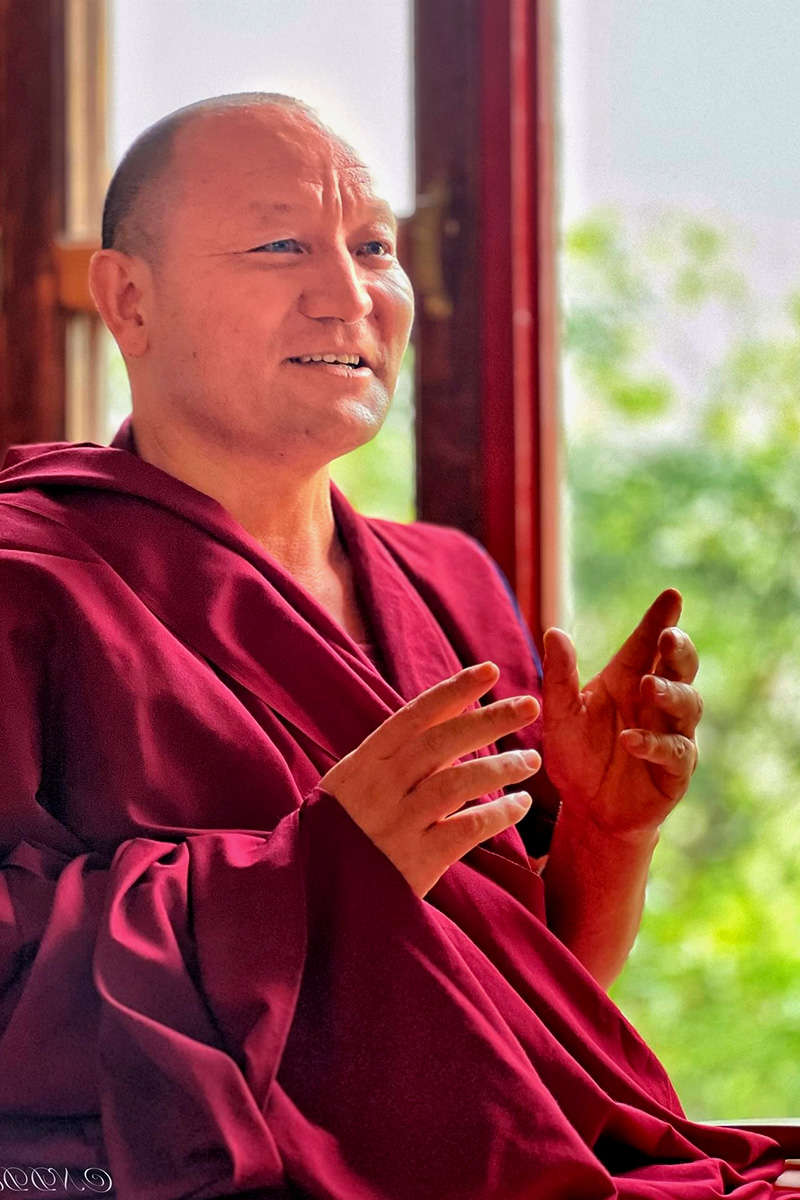Shamatha Winter Meditation Retreat
March 15th – April 12th, 2026
with Geshe Ngawang Thekchok la
What we will learn and practice
This four-week retreat offers an immersive and experiential opportunity to learn and practice under the guidance of an experienced teacher, who has trained extensively for over two decades in the classical Tibetan Buddhist system.
Focusing mainly on personal practice with structured teachings, instructions and group sessions, the retreat aims to help participants to effectively cultivate practice clarity, focus and stability in their meditative practices.
We will learn and practice Shamatha meditation step by step, cultivating calm abiding and training the mind to rest with clarity and stability.
We will work towards integrating meditation into everyday life, discovering simple yet powerful techniques to bring mindfulness into your daily routines and personal retreats.
We will also explore the heart of Buddhist principles and traditions, gaining a deeper appreciation for the wisdom and compassion at the foundation of the teachings.
The retreat is open to all levels — from beginners to experienced practitioners. The final days include self-guided practice to strengthen independence and confidence in your meditation.

Shamatha Meditation
Shamatha, or “calm abiding,” trains the mind in focused attention and tranquility. Through disciplined practice, focusing on objects like the breath or a visual image, practitioners stabilize their mind, calming turbulence and enhancing concentration. It’s not about forcing the mind onto an object but allowing it to naturally rest, fostering sharper focus and mental clarity.
Retreat Structure
Our program gradually moves from study to deep practice. Each day is balanced between morning teachings (philosophy, instructions, Q&A) and afternoon practice (silent sitting, meditation, and self-cultivation).
We recommend attending the full four-week retreat.
Participants will transition into independent meditation after the first three weeks, with optional group sessions.

Week 1 – FOUNDATIONS
Introduction to Buddhism: The Four Noble Truths.
The role of meditation in Buddhist practice: essence, purpose, and benefits.
Why retreats matter: how to conduct yourself during and between sessions.
Exploration of Different Types of Meditation in Buddhism.
Practice of the Four Foundations of Mindfulness, beginning with breath awareness.
Week 2 – WORKING WITH OBSTACLES
Recognizing and overcoming dullness, agitation, distraction, and mental fog.
Applying remedies through both individual and group practice.
Week 3 – SHAMATHA TRAINING
Step-by-step instruction and practice in Shamatha meditation.
Study of classical teachings and instructions on Shamatha.
Guided and silent Shamatha sessions (with and without direct instruction).
WEEK 4— INDIVIDUAL PRACTICE
Refining focus and stability through continued Shamatha training.
Gradually focus on conducting meditation sessions independently.
Upon the completion of the four-week retreat, participants are welcome to pursue their own individual practice and retreat in their own rooms.
For more information and registration, email us at [email protected]


